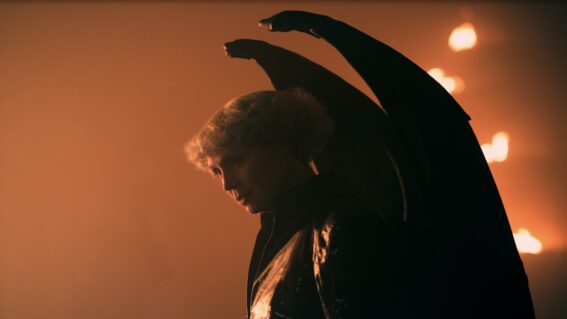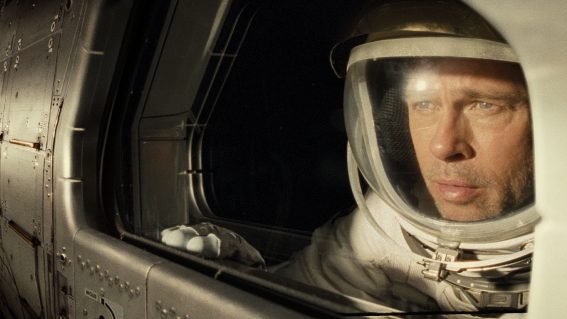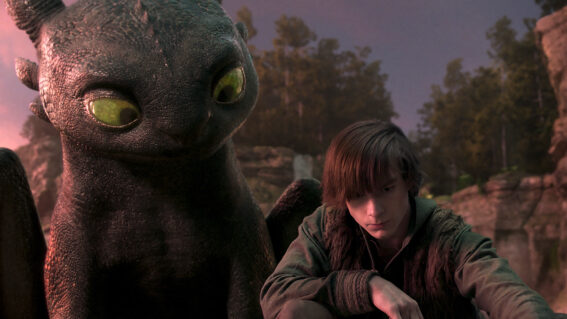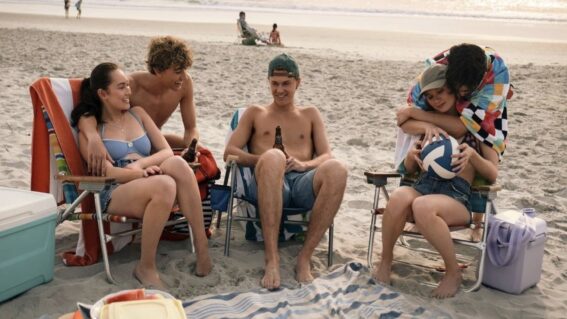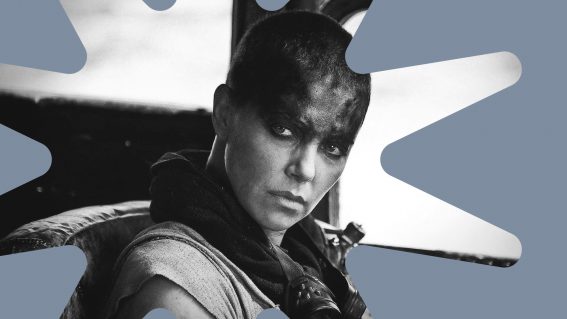Official Competition and other insightful films about filmmaking
The latest film starring Antonio Banderas and Penélope Cruz mocks the scenes behind the scenes, like many films before it.

Oscar veterans Antonio Banderas and Penélope Cruz join a fellow Oscar, Oscar Martínez, for filmmaking comedy Official Competition. Katie Smith-Wong takes a look at the film and the aspects of filmmaking ripe for parody, as well as previous films that have explored similar behind-the-scenes scenes.
SPOILERS AHEAD
The world of filmmaking is never without a bout of drama. From temperamental actors and demanding directors to dwindling budgets, making a film is a melting pot for endless chaos—and that’s before the camera even starts rolling.
But what happens when this mayhem never resolves itself? This is the conundrum driving the latest film from Argentinean directors Gastón Duprat and Mariano Cohn, Official Competition (OV: Competencia Oficial), which sees the drastic lengths to which actors and filmmakers will take, just to look good.
The main theme of Official Competition is disarray, which is primarily driven by the creative differences of its protagonists. Between eccentric director Lola Cuevas (Cruz), big-shot actor Félix Rivero (Banderas) and the older, classically trained Iván Torres (Martinez), this production feels doomed from the start—especially when an ageing multimillionaire specifically funds the production to leave a legacy.
But unlike Academy Award nominees Saving Mr Banks and Adaptation, as well as Daniel-Day Lewis musical Nine, the screenplay is not a cause for concern from creative differences or writer’s block. Based on a novel revolving around two warring brothers, the screenplay sounds perfect for the chalk-and-cheese pairing of ‘the best actors in the world’—Iván and Félix—so it is up to the trio to bring the story to life.

Duprat and Cohn immediately establish the creative differences between Palme d’Or winner Lola and her stars as their acting styles and how they regard the business feed the tension between them. Félix seemingly depends on his fame and good looks, aiming for increasingly wider recognition as a star, rather than an actor. Meanwhile, Iván looks down on the pretentiousness of fame and prefers to focus on the craft and educating others.
They consistently try and out-act each other in front of their director, forming a tense rivalry reminiscent of a multitude of on-screen rivalries before them. Whether it is showcasing talent—Tropic Thunder‘s Hollywood actor Tugg Speedman (Ben Stiller) and method actor Kirk Lazarus (Robert Downey, Jr.)—or the threat of someone younger and more promising, in the case of All About Eve‘s Margo Channing and Eve Harrington, the competitiveness between two bold characters can become nothing more than pettiness. Luckily, Lola is on hand to bring their egos down, using a rock to convey fear or a metal grinder to destroy their awards, not to mention her own, with hysterical results.

Lola not only pushes the boundaries between the chemistry of her actors but also sounds to extract the right feeling from what is available. The use of sound echoes similar narrative elements in The Artist and Singin’ in the Rain, as well as Martin Scorcese’s epic The Aviator, where the age of talkies takes centre stage and actors have to contend with actually speaking on film.
The Artist‘s lead character George Valentin (Jean Dujardin) becomes bankrupt by financing his own silent film amid the first wave of talkies. Meanwhile, director Roscoe Dexter (Douglas Fowley) has to contend with sensitive audio equipment in Singin’ in the Rain, not to mention diva Lina Lamont. Played brilliantly by Academy Award nominee Jean Hagen, Lamont’s strong Brooklyn accent prevents her from delivering eloquent dialogue—a device so classic in comedy that it is celebrated by the Coen Brothers in Hail, Caesar!, where a simple diction lesson between director Laurence Laurentz (Ralph Fiennes) and cowboy actor Hobie Doyle (Alden Ehrenreich) becomes complicated.
But unlike in these films, the disorder stemming from Félix and Iván’s rivalry and Lola’s haughtiness as a filmmaker proves too much as an accident and a ill-timed defence mechanism essentially destroys the pre-production process, as well as the dynamic between the three protagonists. But as The Disaster Artist proves that even with a tumultuous production, the show goes on.











